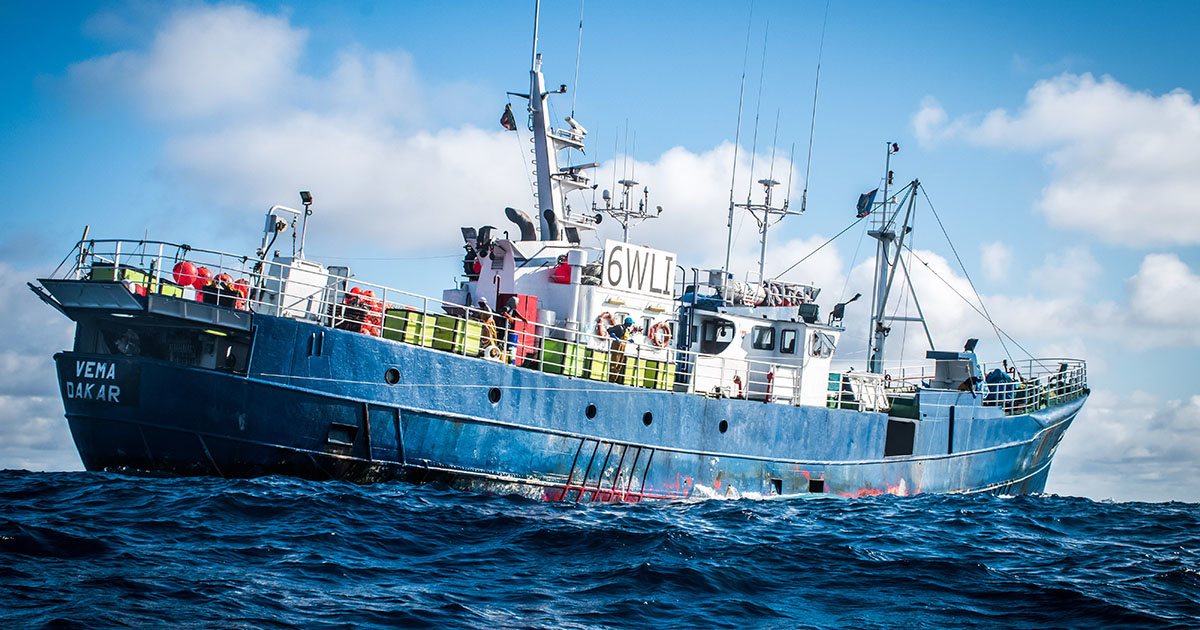ClientEarth and Oceana sue the Spanish authorities for inaction on alleged illegal fishing in West Africa

A Senegalese and Spanish-linked fishing vessel
30.04.2025
ERF partner ClientEarth and the NGO Oceana have filed a legal case against the Spanish government, alleging negligence over Spanish vessels fishing illegally in West African waters.
Central to the lawsuit is Spain’s purported failure to investigate vessels that disable their Automatic Identification System (AIS), a breach of EU fisheries regulations designed to ensure maritime transparency and safety. Analyses by Global Fishing Watch indicate that several Spanish-flagged vessels operating near Senegal and Guinea Bissau deactivated their AIS for extended periods between 2020 and 2023, with one vessel reportedly ‘staying dark’ for over a year.
This has raised concerns, as Nils Courcy, a lawyer at ClientEarth confirms: “What puzzles us is why these boats switch off their public identification signals. This lack of transparency could be linked to fraud. We’ve asked the Spanish authorities to investigate, but they’ve refused.”
The implications are profound. Foreign-owned vessels, predominantly Spanish, constitute 73% of West Africa’s industrial fleet. The depletion of local fish stocks due to overfishing has led to significant challenges for coastal communities, including threats to food security, loss of livelihoods, and increased migration pressures.
Despite EU laws prohibiting illegal fishing and mandating member states to enforce compliance, Spanish authorities have reportedly declined to investigate these incidents. They argue that unless vessels are listed on official illegal blacklists, they lack the authority to act. This stance has been criticised for creating legal loopholes that allow Spanish companies to operate with impunity in foreign waters.
Senior Policy Advisor at Oceana in Europe, Ignacio Fresco Vanzini, stated: “EU law explicitly prohibits its citizens and companies from engaging or supporting illegal fishing anywhere in the world. If they do, Member States must identify and sanction them, regardless of whether these vessels are part of official blacklists. Spanish legislation must close existing loopholes to ensure that companies profiting from illegal fishing in other parts of the world can be held accountable.”
The European Union has also had concerns. It issued a “yellow card” to Senegal in May 2024, over the country’s efforts to combat illegal, unreported, and unregulated fishing. However, NGOs argue that the responsibility extends beyond Senegal, emphasising that EU member states must also monitor and regulate their fleets abroad.
The issue is not confined to West African waters. In December 2023, Spain sanctioned 25 Spanish-flagged vessels for disabling AIS near Argentina between 2018 and 2021. Fines reached up to €60,000 per vessel, following Oceana’s investigation.
ClientEarth and Oceana hope the case, now before Madrid’s Administrative Court, will compel Spain to uphold EU laws, safeguarding both marine ecosystems and West African livelihoods. It is also hoped it will set a precedent for how EU member states enforce fishing regulations beyond their territorial waters, leading to better oversight and accountability for European fishing operations globally.